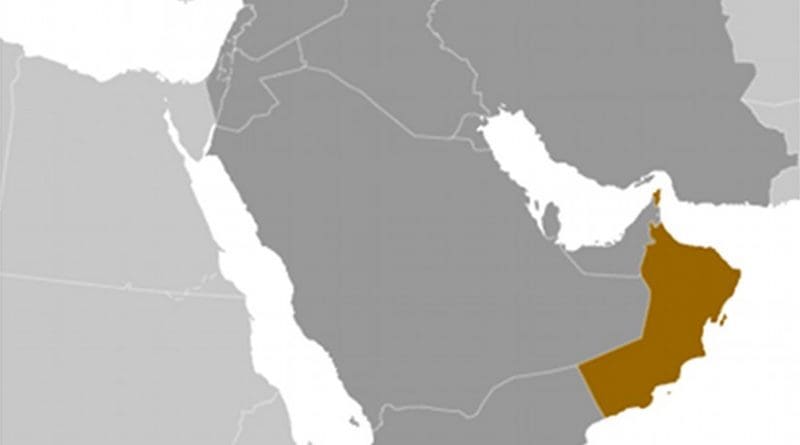Oman: Journalists Sentenced Over Articles Alleging Corruption
An Omani court sentenced three journalists to prison on September 26, 2016, and ordered the permanent closure of their newspaper, over an article that alleged corruption in the judiciary. Ibrahim al-Ma’mari, the editor-in-chief of the newspaper Azamn, and Yousef al-Haj, its deputy editor, remain in custody while the judge released Zaher al-Abri, another editor, on bail at the beginning of the trial on August 22.
The court of first instance in Muscat sentenced both al-Ma’mari and al-Haj to three years in prison and ordered them to pay a fine of 3,000 Omani Rials (US$7,800) on charges of “disturbing public order,” “misusing the internet,” “publishing details of a civil case,” and “undermining the prestige of the state,” the rights group Monitor of Human Rights in Oman (MHRO) reported. It also barred them from journalism for one year. The court sentenced al-Abri to one year in prison and fined him 1,000 Omani Rials (US$2,600) for using “an information network [the Internet] for the dissemination of material that might be prejudicial to public order.” The court set bail at 50,000 Omani Rials (US$130,000) for al-Ma’mari and al-Haj if they decide to appeal.
“Oman’s government appears to be in competition with its Gulf allies in throwing journalists and activists in prison for peaceful criticisms,” said Joe Stork, deputy director of Human Rights Watch’s Middle East and North Africa division. “Oman should investigate the authorities’ potential misuse of power instead of silencing the messenger.”
These broad restrictions on reporting appear to violate international standards of freedom of expression, including the right to criticize government officials.
On July 26, Azamn published an article, “Higher Authorities Tie the Hands of Justice,” alleging that the chairman of the Omani Supreme Court had been involved in unlawfully influencing and overruling an appeal court’s verdict in a high-profile inheritance case. On July 28, the authorities arrested al-Ma’mari, and on August 1, they arrested al-Abri, who oversees the newspaper’s local coverage.
On August 9, Azamn published an interview with Ali bin Salem al-No’mani, the vice president of the Omani Supreme Court, in which al-No’mani supported the allegations in the earlier article concerning undermining the judiciary’s independence. Hours later, the Information Ministry announced the immediate closure of Azamn. Oman’s Internal Security Service arrested al-Haj at his home the same day. The court found al-Haj guilty of publishing an article about the issue despite an order the Ministry of Information issued in August prohibiting further coverage of the issue.
Authorities have targeted Azman before for its criticism. In 2011, a court ordered Azamn to shut down for a month and sentenced al-Ma’mari and al-Haj to five-month suspended jail sentences for insulting the justice minister and other officials.
The United Nations Human Rights Committee sets a high bar for restricting criticism against government officials and has emphasized that the “mere fact that forms of expression are considered to be insulting to a public figure is not sufficient to justify the imposition of penalties.” Therefore, “all public figures, including those exercising the highest political authority such as heads of state and government, are legitimately subject to criticism and political opposition.”

